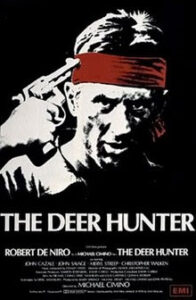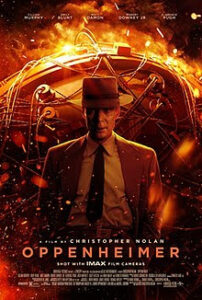
The Deer Hunter
Directed and co-written by Michael Cimino
Starring Robert DeNiro, John Cazale, John Savage, Meryl Streep, and Christopher Walken
Originally released (in LA) Dec. 8, 1978
I hadn’t watched The Deer Hunter since it first came out – almost 35 years ago. I remembered it as a very good movie. But I also remembered that it was a harrowing, almost traumatizing, experience. What I forgot was how long it is: three hours.
Though categorized as an “epic war drama,” The Deer Hunter isn’t very much about Vietnam. It’s about two things that it well and deeply explored: The range of masculine strength and weaknesses. And the depth and tenacity of male friendship.
What I Liked About It
* The acting – by both the principal and secondary actors.
* The depiction of a mining town in Pennsylvania back then. I knew that part of Pennsylvania a bit, and it looked very right.
* The depiction of how we (draft-age men) spoke and interacted. Every stunt and conversation was very true to my life back then.
* The depiction of PTSD. The event that caused it in the movie was, as far as I can tell, invented. But the trauma displayed by the men coming back from the war was real.
* The photography. It was almost crude. But beautiful.
* The pace. Very slow. A full hour on a wedding! But it created a feeling for how life was in such towns that, again, felt very real to me.
What I Didn’t Like So Much
* The portrayal of Vietnam and the Vietnamese was superficial, almost racist.
* The battle scenes were not particularly interesting.
* The performance of Meryl Streep. This was a very early role for her. I didn’t think she pulled it off. I didn’t know any young woman like the one she played.
Critical Reception
The Deer Hunter was widely praised by both critics and audiences. The only negative comments referred to the film’s “simplistic, bigoted, and historically inaccurate depictions of the Viet Cong and of America’s position in the Vietnam War.” It won multiple important awards, including five Academy Awards, a Golden Globe, and two BAFTAs. It has also been featured on many “Best Film” lists.
You can watch the trailer here.








